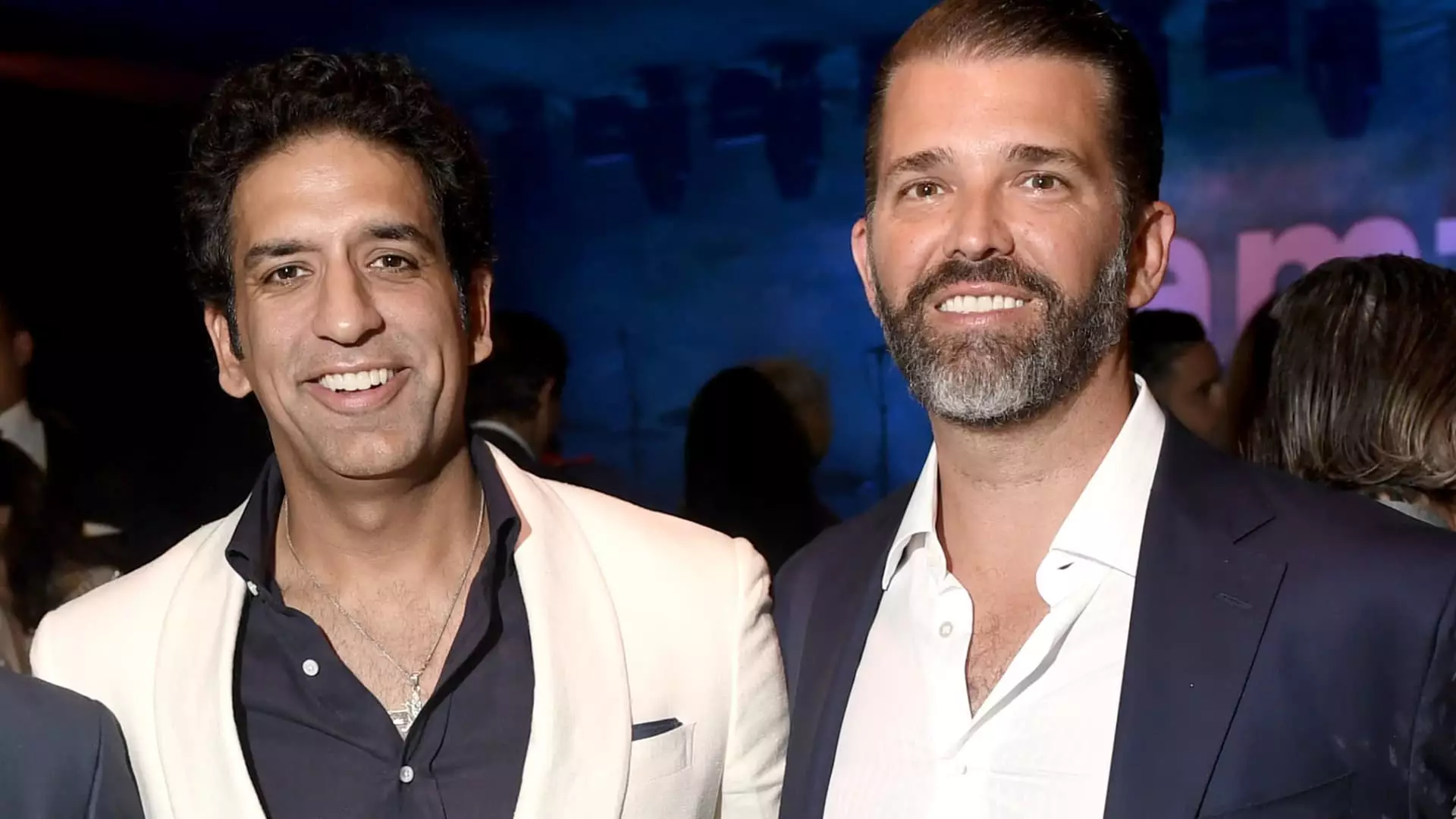In a city renowned for its political intrigue and wealth disparity, the emergence of the Executive Branch, a new private membership club co-founded by Donald Trump Jr., is both eye-popping and troubling. With a staggering membership fee of $500,000 and an extensive waiting list, this club epitomizes the unsettling trend toward exclusivity that has gripped Washington, D.C., in recent years. As we scrutinize this phenomenon, it’s essential to reflect on the ramifications such elitism poses for democracy itself.
This club, whose launch party drew an array of high-profile figures ranging from members of the Trump administration to crypto moguls, is not just a social venue; it’s a strategic social-political hub. In many ways, it serves as a literal embodiment of a political machine that thrives on the connections and financial resources of its members. The terrifyingly high barrier to entry prioritizes wealth over merit, fostering a culture where influence can be purchased rather than earned.
Who Gets to Play? The Anatomy of Access
The vetting process mandated by the club’s founders raises questions about who gets to build relationships within the club’s hallowed walls. One insider noted the intention to keep media members and “just a lot of lobbyists” out, signaling a desire for a curated environment where diverse perspectives are not only unwelcome but actively excluded. This insulated approach risks creating an echo chamber populated entirely by affluent male executives and politicians who may prioritize their interests over those of their constituents.
In this context, the Executive Branch represents a broader crisis in American society where only those with significant financial resources are allowed to engage in political conversations. Instead of fostering democratic discourse, it may further entrench existing power structures and disconnect elites from the realities faced by average Americans. The fact that some “founding members” include prominent figures from the cryptocurrency realm is no coincidence; it showcases the melting of finance and politics, which many see as a severe conflict of interest.
Is Affluence the New Currency for Influence?
As the lines between wealth and political influence blur, we must ask: what is the cost of a society where access to power is effectively marketed to the highest bidder? Given the exorbitant fee required for entry into the Executive Branch, one cannot help but feel an unsettling reminder of the corrosive impact wealth can have on democratic values. With membership costing more than double that of various posh clubs in New York, it becomes increasingly evident that our political system may be evolving into something dangerously akin to oligarchy.
The historical precedent established by the Trump Organization’s hotel underscores the risk of such exclusive venues: lavish social settings often invite ethical scrutiny while perpetuating a culture where access to power is predicated on financial ability rather than democratic ideals. Clubs like the Executive Branch effectively commodify political connection, further alienating the public and amplifying inequality.
Exclusivity vs. Democratic Values
In a nation that champions democratic ideals, the proliferation of membership clubs that offer preferential access to power brokers should serve as a cause for concern. They symbolize a retreat from public accountability and an alarming move toward a societal framework that prioritizes wealth over community. The potential rise of the Executive Branch as the new social nexus for decision-makers could further entrench the disconnect between the elite and everyday citizens, undermining the very essence of democracy.
The stark reality is that private clubs like this only serve to enhance the existing divide between those who wield power and those whom it affects. When political decisions emerge from selective circles of affluence whose interests are often self-serving, how can we trust that the governance of our nation truly reflects the voices of all its citizens? The quest for social belonging — particularly among the political elite — seems to come at the expense of inclusivity, equity, and accountability.
As the Executive Branch prepares to launch amidst a climate where wealth often translates to influence, it beckons a pivotal question for society: will we allow these ephemeral barriers of class and access to compromise the values that underpin American democracy? The answer may shape not only the trajectory of our political landscape but also the very fabric of civic life itself.

